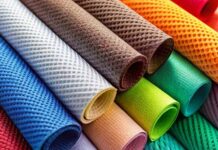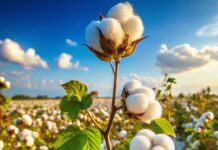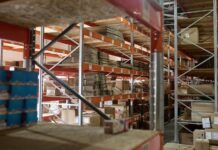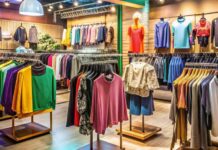The Lenzing Group, a prominent leader in regenerated cellulose fibers for the textile and nonwoven industries, has unveiled its 2024 Annual and Sustainability Report, titled “Activate Transformation Here.” This report not only serves as a comprehensive review but also acts as a call to action for the transformation of the textile and nonwoven industry towards greater sustainability. The report is available digitally at reports.lenzing.com.
“To preserve our livelihoods and those of future generations, the global textile and nonwoven industry must transition to sustainable production. Although the necessary technologies and capacities are gradually coming to market, little progress has been made on a global scale so far,” says Rohit Aggarwal, CEO of the Lenzing Group. “At Lenzing, we have the know-how to produce fibers on a large scale from renewable raw materials and to recycle them sustainably. To make a difference, we need to move towards industry-wide collaboration with binding standards. This is certainly a challenge, but also an opportunity.”
The 2024 report’s consolidated non-financial statement complies with the Global Reporting Initiative (GRI) guidelines and the EU Taxonomy Regulation, and it is prepared in accordance with the European Sustainability Reporting Standards (ESRS) for the first time. KPMG Austria GmbH has audited the report.
Through a double materiality analysis, Lenzing identified key sustainability challenges in 2024, collaborating with stakeholders to define material topics such as climate & energy, water & pollution, biodiversity & ecosystems, circular economy & resources, responsible wood procurement, sustainable innovations & products, human rights & fair labor practices, business ethics, and transparency.
Lenzing has established ambitious group-wide sustainability goals addressing the challenges in its strategic focus areas, contributing to the United Nations Sustainable Development Goals (SDGs).
Striving Towards Net Zero
In 2024, Lenzing revised its climate targets to align with the Paris Agreement’s objectives, aiming to limit global temperature rise to 1.5 degrees Celsius. This target upgrade was reviewed and confirmed by the Science Based Targets Initiative (SBTi), making Lenzing the only producer of regenerated cellulose fibers with a verified science-based net-zero target.
To achieve its goals, Lenzing is executing a climate action plan that is part of its corporate strategy and approved by the Managing Board. Recent investments include a photovoltaic system and a biomass power plant at its Austrian sites, along with over EUR 200 million spent to modernize production facilities in China and Indonesia. In 2023, Lenzing made significant progress by replacing coal with natural gas for energy supply at its Chinese site through the commissioning of two gas turbines.
The production of dissolving pulp and fibers is energy-intensive, leading Lenzing to minimize fossil energy use and replace it with renewable sources. Investments in advanced technologies and manufacturing processes with low CO2 emissions have enhanced energy efficiency and reduced greenhouse gas emissions.
The non-profit organization CDP recognized Lenzing’s leadership in sustainability by placing the company on its prestigious A-List in the “Climate” category for the fourth consecutive year.
Since 2017, Lenzing has successfully reduced its specific greenhouse gas emissions by 41% and is on track to meet its science-based targets. The company also made strides in decreasing wastewater emissions, including the full commissioning of its upgraded wastewater treatment plant in Indonesia. Additionally, Lenzing is set to launch a new wastewater treatment plant at its Grimsby site (United Kingdom), with plans for completion in 2025, expected to cut wastewater emissions by up to 80%.
Focus on Sustainable Innovations
To aid customers and partners in meeting their climate goals, Lenzing continues to prioritize sustainable innovations with robust product brands. The company introduced hydrophobic cellulose fibers for sustainable nonwovens, offering innovative solutions for hygiene applications that were previously reliant on synthetic fibers.
In collaboration with the technology start-up Exponent Envirotech, Lenzing launched a waterless dyeing technology for regenerated cellulose fibers, achieving a reduction in water and dye consumption by 95% and 40%, respectively, compared to traditional methods.
Lenzing has also worked to develop solutions for the global textile waste problem, launching new shoe materials made from TENCEL Lyocell fibers and recycled leather fibers with reduced environmental impact in partnership with Recyc Leather. Another initiative, “Glacial Threads: From Forests to Future Textiles,” merges glacier protection with textile recycling, utilizing biodegradable LENZING fibers to create geotextiles that help protect glaciers while preventing microplastic pollution. This pilot project was awarded the “Biodiversity and Water Award” at the CNMI Sustainable Fashion Awards 2024 in Milan.
Champion of Sustainability
Lenzing’s commitment to sustainability, transparency, traceability, innovation, and strong brands differentiates the company in the industry. For these achievements, Lenzing has received recognition from major rating providers, including a top CDP rating in the “Climate Change” category, very good “A-“ and “B” ratings in “Forests” and “Water Security” categories, and platinum status in EcoVadis’s CSR rating for the fourth consecutive time, placing it in the top one percent of companies evaluated worldwide. Additionally, MSCI rated Lenzing with an “A” and the company achieved first place in the global “Hot Button Ranking” by Canopy, which evaluates regenerated cellulose fiber producers on sustainable sourcing, transparency, and innovation.






























